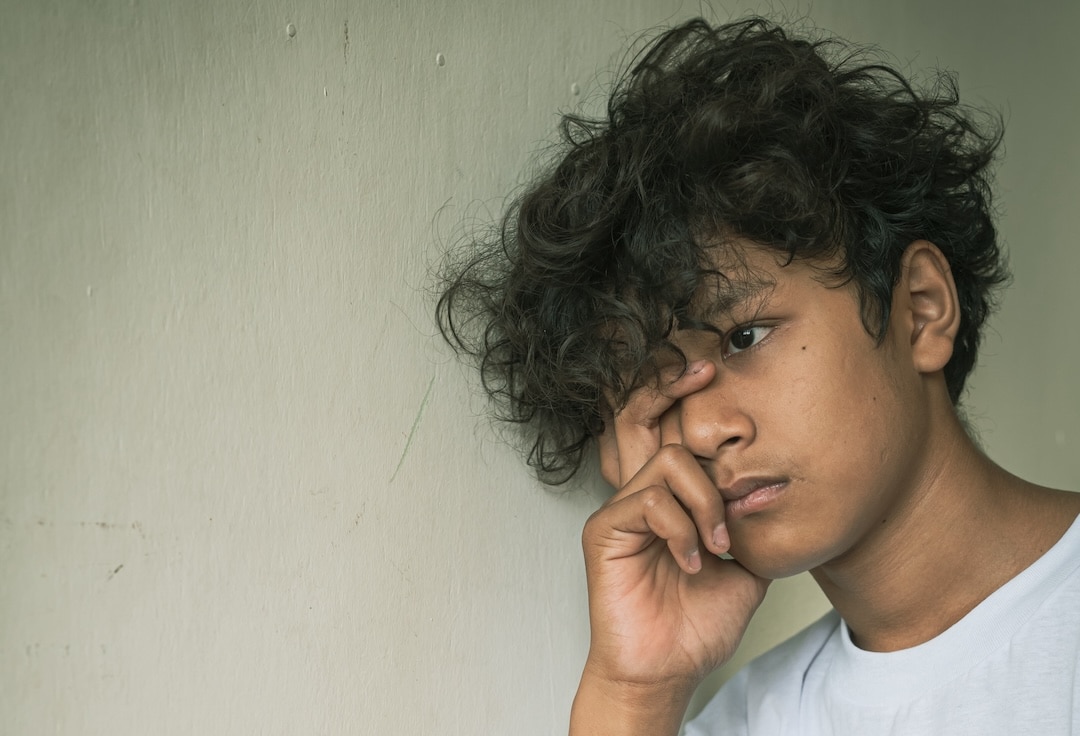We Currently DO NOT Accept Medi-Cal, Medicare, IEHP, Kaiser or Government state/county funded health insurance.
Bipolar Disorder Treatment
Bipolar disorder is a prominent condition affecting teens and adults, but many do not realize they have it. In the past, bipolar disorder could be mistaken for teenage moodiness or normal mood swings, despite the fact that something more serious was going on.
In 2021, over 20% of teens aged 12-17 reported experiencing a major depressive episode. Depression and anxiety in teens can result in a missed bipolar disorder diagnosis, neglecting the opportunity for a mentally healthy future.
At BNI Treatment Centers, we offer comprehensive psychological testing for teens, enabling them to receive an accurate diagnosis and a personalized treatment plan. Bipolar disorder is complex, and our team is comprised of experts who understand its presentation in teens.

What We Treat: Bipolar Disorder in Teens
Bipolar disorder is a chronic mood disorder that causes intense shifts in mood regulation, often involving a combination of manic, hypomanic, and depressive episodes. In adolescents, the clinical presentation often differs from that of adults, as rapid mood fluctuations occur more frequently and last for shorter durations. During manic episodes, symptoms present with more irritability in teens rather than euphoria seen in adults. Bipolar disorder is classified as a major mood disorder within the DSM-5 and requires long-term treatment and lifestyle changes to help keep mood centered.
These mood changes can happen suddenly and might be confusing or upsetting for teenagers. Teens with bipolar disorder often find it difficult to understand their symptoms. They may hesitate to share their feelings with loved ones out of fear, embarrassment, or uncertainty about what they are going through.
At BNI Treatment Centers, we focus on adolescent mental health and offer targeted treatments to address the root causes and symptoms of bipolar disorder.
How We Treat: BNI Treatment Centers’ Psychiatric Approach to Care
Treating bipolar disorder in teens requires a specialized approach that balances structured, evidence-based care with genuine empathy.
The treatment journey begins with a comprehensive psychiatric evaluation to understand your teen’s history, current symptoms, and the impact of mood fluctuations. Based on these findings, we develop an individualized treatment plan specific to your teen’s needs. This includes individual and group therapy, medications as needed, and skill-building courses such as gardening therapy.

Our process is rooted in psychiatric practices, as board-certified, USC-graduate psychiatrists found our facility. While both psychologists and psychiatrists focus on behavioral interventions, psychiatrists can prescribe medications and treat more complex mental health conditions. This is crucial for adolescents as they are in the developmental stage of their mental health.
Depending on the severity of symptoms and level of impairment, care may involve residential treatment, partial hospitalization, or intensive outpatient services. No matter the level of care, your teen will receive comprehensive, research-backed support designed to promote mood stabilization, insight, and long-term recovery.
At BNI Treatment Centers, our intimate facility ensures your teen receives the individual care they deserve. When in residential care, our support team provides academic assistance and access to computers to help with school assignments.
Etiological Factors Contributing to Adolescent Bipolar Disorder
The etiology of bipolar disorder in adolescents involves a combination of genetic, neurobiological, and environmental factors. These include:
- A family history of mood disorders, especially in a 1st degree relative
- Experiencing trauma, neglect, or abuse
- Substance use, particularly from a young age
- Major life changes that produce extreme stress
Research shows that changes in brain structure occur in those with bipolar disorder. One study showed faster enlargement of ventricular volumes as well as abnormal frontocortical thinning specifically in those who experience manic episodes. Both are associated with the progression of bipolar disorder and how it physically changes the brain, affecting mood and the thought process.
Clinical Indicators of Bipolar Disorder in Adolescents
Though bipolar disorder typically begins in the early to mid-20s, the condition can also present in adolescents and be mistaken for teen angst or “moodiness”. Symptoms of biopolar disorder in adolescents include:
- Increased irritability – little annoyances like parents asking a question cause anger
- Inflated self-ego, where the teen feels they are better than those around them
- Staying up late to game or scroll social media due to decreased need for sleep
- Intense goal-directed activity, such as working ahead on school projects
- Periods of sadness and hopelessness where mood stays low
- Suicidal ideation or thoughts of self-harm
- Risk-taking behaviors such as substance use or reckless driving
Bipolar disorder is characterized by “highs” and “lows.” The highs refer to mania or hypomania, where the teen feels able to take on anything. The lows refer to depressive episodes, where the teen feels down, lacks motivation, and may experience thoughts of self-harm or suicide.
Adolescent Bipolar Disorder: Diagnostic Considerations
Bipolar disorder in adolescents can present differently than in adults. Adolescents are more likely to experience mixed episodes, chronic irritability, and rapid cycling. Adolescents also face concerns with comorbid conditions. Common adolescent conditions such as ADHD, anxiety, and substance use all pose complications in diagnosing bipolar disorder.
The key to proper diagnosis involves extensive psychological testing and continued assessments. At BNI Treatment Centers, our expert team conducts this process for each of our clients, ensuring they receive the proper diagnosis and treatment path.
The Clinical Implications of a Bipolar Diagnosis
A formal diagnosis of bipolar disorder has important clinical implications. When bipolar disorder in teens goes untreated or is misdiagnosed, it leads to academic failure, social problems, family conflicts, and a higher risk of suicide. Detecting the condition early and accurately enables targeted interventions that improve long-term outcomes and overall mood stabilization. Psychoeducation for families of clients is also crucial to encourage treatment adherence and fight stigma.
At BNI Treatment Centers, our psychiatrist-led team is dedicated to your teen and your family. We provide education for parents as well as clinical assessments to ensure your teen receives the proper care needed to manage their bipolar disorder.
Bipolar I Disorder: Diagnostic Criteria and Symptom Profile
Bipolar I disorder in adolescents is characterized by the occurrence of at least one manic episode, which may be preceded or followed by depressive episodes. A manic episode must last for 7 days and include an abnormally elevated, expansive, or irritable mood accompanied by increased energy, inflated self-esteem, decreased need for sleep, racing thoughts, and impulsive behaviors. Depending on the teen, the number of symptoms experienced during the episode will vary.
Manic episodes can also lead to psychosis, which involves hallucinations, delusions, and paranoia. This is considered a mental health emergency and requires immediate attention. BNI Treatment Centers offers acute stabilization during these episodes, providing a safe and stable environment.
Bipolar II Disorder: Recognizing Hypomanic and Depressive Episodes
Bipolar II disorder involves a pattern of depressive and hypomanic episodes. Hypomania is similar to mania, as it also causes elevated mood, increased activity or energy, and decreased need for sleep, but the episode is shorter in duration, lasting approximately 4 days. It does not cause significant impairment in social or occupational functioning.
The depressive episodes are often more debilitating and are typically the presenting concern in adolescents. Those with bipolar II disorder experience similar symptoms to major depressive disorder. However, these symptoms subside, and the teen returns to a baseline where neither depression nor hypomania is occurring.
Request a Confidential Callback
Our caring admissions team is standing by ready to help your teen or adolescent. Call us 24/7 or fill out our free form to request a callback right now.
Evidence-Based Assessment and Treatment Modalities for Adolescent Bipolar Disorder
Assessing and treating bipolar disorder in adolescents requires evidence-based protocols that integrate pharmacologic and psychotherapeutic approaches. A combination of talk therapies, medications as needed, and coping skill development is necessary to address all facets of bipolar disorder. Some teens may also require co-occurring substance use disorder treatment, prioritizing the need for specialized care.
At BNI Treatment Centers, our compassionate and dedicated team specializes in adolescent mental health. Our program provides science-backed programming along with empathy and academic support, ensuring your teen has all the tools needed to become mentally strong. Treatment plans are continuously evaluated and adjusted based on clinical progress and your teen’s needs.
Comprehensive Psychiatric Evaluation: What to Expect During the Diagnostic Process
During a psychiatric evaluation, adolescents and their families meet with a psychiatrist from BNI Treatment Centers to discuss their medical, developmental, academic, and psychosocial histories. They will explore mood patterns, behavioral changes, sleep habits, and family psychiatric history. Assessments also involve psychological testing, a physical examination to rule out medical causes, and collaboration with past treatment providers or educators. This gives the team a direction for an accurate diagnosis and individualized treatment plan.
Psychotherapeutic Approaches: Effective Therapies for Managing Bipolar Disorder in Teens
Psychotherapy – commonly known as talk therapy – provides a safe space for teens to learn effective techniques to manage bipolar disorder. Some of the most common include:
- Cognitive behavioral therapy (CBT): The main focus is to change negative thought and behavior patterns to positive, beneficial ones.
- Dialectical behavior therapy (DBT): In DBT, teens learn to recognize the emotional aspects of their decisions and behavior patterns and develop healthy coping strategies.
- Family-focused therapy (FFT): Educational sessions for families to understand their teen’s treatment and diagnosis. Sessions will also take place altogether to help with family dynamic understanding and offer solutions to address problem areas.
At BNI Treatment Centers, we provide these therapies and more in group and individual settings. This ensures your teen receives effective therapies that will provide mental relief and pave the path to healing.

Get Bipolar Disorder Treatment for Your Teen at BNI Treatment Centers
Navigating bipolar disorder can be overwhelming for both your teen and your family, especially when symptoms intensify. Specialized treatment makes a significant difference in managing the condition and reducing its long-term impact. At BNI Treatment Centers, our psychiatrist-led approach ensures your teen receives comprehensive, evidence-based care tailored to the complexities of bipolar disorder.
Our approach includes targeted therapies, psychiatric medications as needed, and skills-based programs to support emotional regulation, mood stabilization, and overall wellness. Your teen will receive a personalized care plan that reflects their unique presentation, whether they’re experiencing manic, hypomanic, or depressive episodes.
BNI Treatment Centers has helped adolescents across Southern California find stability and renewed hope through compassionate, research-backed treatment. To learn more about how we can support your teen, contact us today at (888) 522-1504.
BNI Treatment Centers: Science-based, evidence-backed, compassion-led
